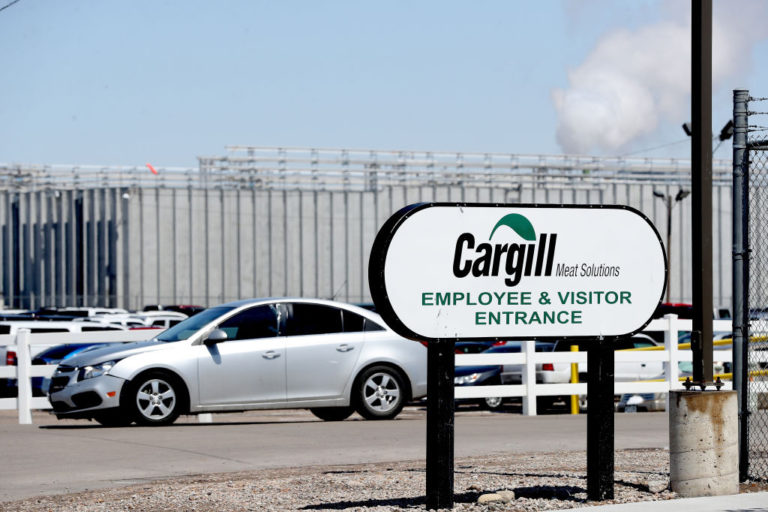
In an in industry-shifting win for meatpacking workers, over 7,000 Cargill workers who are members of UFCW Locals 2, 293 and 540 recently ratified strong, new contracts that include better wages and benefits. The workers are employed at Cargill plants in Dodge City, Kan.; Fort Worth, Texas; and Schuyler, Neb.
The UFCW negotiated a $2 per hour temporary raise for Cargill workers from March 23 to May 5 as part of our effort to increase pay and other benefits for frontline workers during the COVID-19 coronavirus outbreak, and the new contract makes the $2/hour increase permanent through the rest of the 5-year agreement. In addition to the permanent $2 per hour raise, the workers will also receive a $6 per hour temporary raise in response to the ongoing health crisis through August 31, 2020, and short term disability benefits will be significantly strengthened.
The agreement with Cargill stands in a sharp contrast to how employers such as Kroger, who recently ended their so called “hero pay” despite the objections of the UFCW and concerned shoppers, have handled hazard pay and benefits for their employees.
The UFCW has been pushing for better standards for food workers since the beginning of this crisis. With Cargill as the third largest meat producer in the United States, the UFCW hopes the victory will help pave the way for raising standards in the entire industry.
“The $2 permanent wage increase and enhanced benefits represent a significant breakthrough for our members at Cargill,” said International Vice President and Food Processing, Packing and Manufacturing Division Director Mark Lauritsen. “Our union will push other meatpacking and food processing employers to follow Cargill’s lead with the goal of raising standards for all workers in this industry.”
Work in these plants is never easy, and at a time of so much turmoil, it is welcome to have a bit of good news that the hard work and sacrifice of these men and women will be recognized. There is no price on someone’s safety, but these increases help define essential workers as valued and important to our communities rather than disposable, and we hope that more employers, in not only meat packing but in all essential industries, will recognize this and follow suit.



